Don”t miss out
Subscribe
Sign up for our newsletter to get submission announcements and stay on top of our best work.
Watching: 11 of the most realistic portrayals of mental illness in novels
If you enjoy reading Electric Literature, join our mailing list! We’ll send you the best of EL each week, and you’ll be the first to know about upcoming submissions periods and virtual events.
The National Institute of Mental Health reports that nearly one in five adults in the United States lives with mental illness. The stigma surrounding mental illness is shifting, but that doesn’t mean it is any easier to write about. The challenge of writing about mental illness is to describe the indescribable, to make the concept of pain real for an audience not experiencing it, and to render pain simultaneously mental and physical, spiritual and cultural.
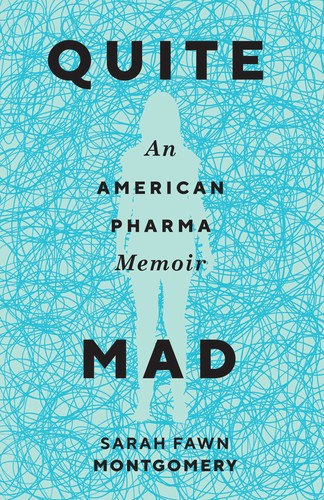
Buy the book
In my book Quite Mad: An American Pharma Memoir, I write about my experiences with severe anxiety, obsessive-compulsive disorder, and post-traumatic stress disorder, mental illnesses which often present as unreal to those who have not experienced them. To make these real for readers, I situate my story within the stories of others, weaving memoir with cultural criticism and positioning my complex history of treatment within the context of the United States’ treatment of the mentally ill — a cruel, coercive history fraught with issues of power, particularly for women, who are diagnosed at higher rates, yet less likely to have their pain believed.
Recent literature written about mental illness makes the seemingly unreal experiences of madness vivid and tangible. Here are seven new books that capture the complexities and nuance of mental illness:

blud by Rachel McKibbens
McKibbens’ blud casts an insistent urgency over conversations surrounding trauma, survival, and violence to the female body with dark poems that take readers close to the heart of depression. McKibben’s speaker describes the inherited consequences of sexual abuse and physical violence, along with those of genetics. blud is unflinching in its examination of pain and legacy, a rhythmic collection that pulses with the desire to speak what is so frequently silenced. “We, the most feral singers,” McKibben fearlessly claims in the acknowledgements, “We who open our throats to swallow the sky’s shimmering and perfect darkness, we are so goddam holy.” While McKibbens’ poems detail the human hurts many would rather unsee, they are reckonings, stunning spells for those living with mentalillness.
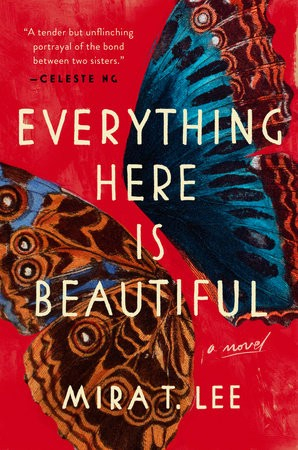
Everything Here is Beautiful by Mira T.Lee
Lee’s debut novel, shares the story of two Chinese American sisters and the impacts that immigration, motherhood, and mental health have on their relationships. Told in alternating points of view, the novel follows pragmatic older sister Miranda as she chooses a conventional path of responsibility, while younger sister Lucia embraces a life of impulsivity, her magnetism shifting to madness. Concealing her schizoaffective disorder, Lucia abruptly leaves her Russian-Israeli Jewish first husband to have a child with an Ecuadorian immigrant, moving in and out of homes, hospitals, and various countries. Conflict over her treatment drives much of the tension. “It was not my story to tell,” Miranda begins the novel and her lifelong sense of duty, one she believes requires her to force her sister to seek treatment. Lucia’s point of view is insightful and intelligent, she is keenly aware of her illness and how it affects others. “I didn’t tell anyone,” she admits, “First, it was a secret. Second, I was ashamed. Third, I couldn’t stand to hear the human population’s efforts to convince me it wasn’t true.” The story is one of blurred lines between individual and diagnosis, familial duty and growing resentment, and the difficult choices we must make to care for ourselves andothers.
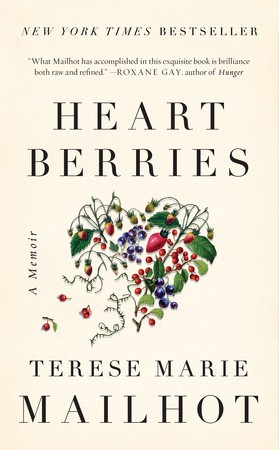
Heart Berries: A Memoir by Terese MarieMailhot
Balancing brevity and boldness, sharp insight with stunning language, Mailhot’s debut memoir about intergenerational trauma places fragmented memories of her childhood of poverty, addiction, and abuse on Seabird Island Indian Reservation in Canada, with those of tumultuous relationships and her institutionalization in mosaic precision. Mailhot is careful not let this scaffolding show, instead, thrusting readers into the world of bipolar disorder and PTSD with little narrative explanation. “My story was maltreated. The words were too wrong and ugly to speak,” Mailhot writes in her frank introduction, her narrative refusing apology or sentiment while still lush with lyricism. The very act of reading Heart Berries is immersive, both breathtaking and brutal, indicative of what it is like to live with mentalillness.
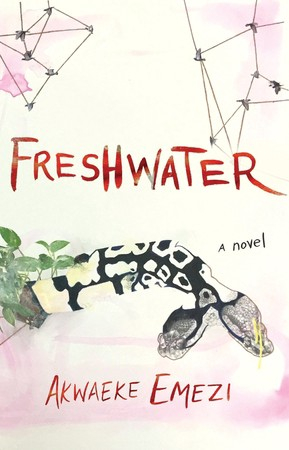
Freshwater by AkwaekeEmezi
Emezi’s debut novel tells the story of Ada, an Igbo and Tamil woman with multiple selves. Set within the context of Nigerian Igbo spirituality as opposed to western understandings of mental health, much of the novel is narrated by the ogbanje — trickster spirits that occupy human bodies — which exist inside Ada from a young age, increasing their presence when she experiences trauma on her college campus in the United States. Demanding sex, alcohol, disordered eating, self-harm, they wonder, “What she would have been without us, if she would have gone mad still. What if we had stayed asleep? What is she had remained locked in those years when she belonged to herself?” Freshwater’s nonlinear lyricism and raw narration challenges the knowability of mental health through science, asking us all to consider our otherness, mutability, and multiplicity.
The Pisces by MelissaBroder
Broder’s debut novel is the surreal, obsessive, and darkly erotic story of a deeply depressed woman who escapes her dead-end relationship and doctoral dissertation to house sit for her wealthy sister in Venice Beach, LA. Lucy spends her time alternating between awkward group therapy sessions and Tinder dates, before meeting a handsome surfer late one night who, it turns out, is a sexual masterpiece. And also a merman. Delightfully bizarre, The Pisces holds nothing back in its critique of the capitalistic wellness industry, descriptions of the detached anxiety of online dating, and merfolk carnality. Border’s discussion of mental illness is equally explicit, Lucy asks, “Could anyone be totally ignorant of the void? Didn’t all of us have an awareness of it, a brush with it — perhaps only once or twice, like at a funeral for someone very close to you, when you walked out of the funeral home and it stopped making sense for just a blip that you existed?” The Pieces presents the duality of mental illness. Lucy is sexual and powerful, seeking pleasure and agency in her body, even as she is unsure of her mind and refuses to conform to the desire for marriage, children, or even recovery.
Readmore: American Literature Syllabus
Little Panic: Dispatches from an Anxious Life by AmandaStern
Stern’s Little Panic tells the story of her anxious childhood in New York City, one surrounded by mystery and misunderstanding until she is diagnosed at twenty-five. Plagued by fears that her mother will abandon her or that she will be kidnapped, Stern’s worries are exacerbated by the intelligence tests she is forced to undergo as a child. “If I try to explain to adults how I’m feeling, they say I’m being overdramatic,” she explains. “Adults always say that kids have it easy, that they wish they could go back to childhood. The kids around me are carefree and happy, but I’m not, and life doesn’t feel easy for me, ever, which means I’m being a kid in the wrong way.” Stories from Stern’s childhood are interspersed with a present-day narrative of failed relationships and the desire to become a mother. Throbbing with dread, yet tender in its rendering of life with a terrifying illness, Little Panic weaves the innocent voice of a child with the world-weariness of an adult who has spent a lifetime with panic disorder.
The Collected Schizophrenias by Esmé WeijunWang
The Collected Schizophrenias is Wang’s highly anticipated forthcoming essay collection about her experiences with schizoaffective disorder, a diagnosis complicated by PTSD and Lyme disease, and the medical community’s own debates about mental illness and treatment. Wang’s insight is sharp, her experience as both a patient and former Stanford lab research lending itself to her blend of intimate personal revelations and careful research.
Take a break from the news
We publish your favorite authors—even the ones you haven”t read yet. Get new fiction, essays, and poetry delivered to your inbox.
Enjoy strange, diverting work from The Commuter on Mondays, absorbing fiction from Recommended Reading on Wednesdays, and a roundup of our best work of the week on Fridays. Personalize your subscription preferences here.
About the Author
Author of Quite Mad: An American Pharma Memoir and three poetry chapbooks.
More about the author
Don”t miss out
SubscribeSign up for our newsletter to get submission announcements and stay on top of our best work.
A Real-Life Bookseller Weighs In on 7 Fictional Ones
Shaun Bythell examines the stereotypes of booksellers in pop culture Oct 5- Shaun Bythell Read
Switch On Symbol
More Like This
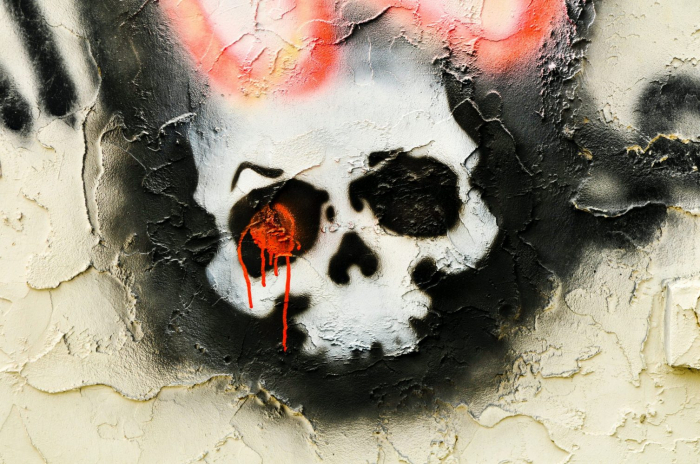
conversations
An Outbreak of Contagious Laughter Threatens to Destroy the World Ilze Hugo”s South African epidemic novel “The Down Days” shows us how disease shapes culture May 29 – Angela Chen
Is the Patriarchy Making Teenage Girls Sick?
Clare Beams, author of “The Illness Lesson,” on hysteria at a 19th century all-girls boarding school
Mar 19 – Shayne Terry
Stop Telling Women to Tone It Down
Rachel Vorona Cote”s “Too Much” is a manifesto for women who are sick of making themselves small
Feb 25 – Richa Kaul Padte
DON’T MISS OUT
Sign up for our newsletter to get submission announcements and stay on top of our best work.
Readmore: Holt Mcdougal Worksheets & Teaching Resources, Holt Mcdougal Literature Grade 6
Enjoy strange, diverting work from The Commuter on Mondays, absorbing fiction from Recommended Reading on Wednesdays, and a roundup of our best work of the week on Fridays. Personalize your subscription preferences here.
Categories: literature